Latest
Lisa Mann by Brent-Anthony Johnson
When I listen to Lisa Mann, I’m reminded of how fleeting and yet beautiful life can be. Her song “Someday” from her most recent release, 2008’s “Chop Water”, was my theme song as I ran through one of the craziest month’s I’ve ever experienced during December 2008! Thank you, Lisa!
The fourteen deftly written tunes featured on the disc run the gamut from grinding blues to 8th note-driven rockers like “Wake Me”, to thoughtful ballads like “Dance A Little Closer”… and each song is driven by Lisa’s bad ass bass playing! This diminutive groove machine and two-time winner of the Cascade Blues Association’s Muddy Waters Award (for Bass Player of the Year); 2008
Vocalist of the Year and 2007 Famecast Band Competition finalist (2nd Place) is someone everyone should hear from much more often than we do! You can learn more at www.lisamannmusic.com and www.myspace.com/lisamannmusic
AJ: Hi “Li”! Thank you for the warmth and humorous grit of “Chop Water”, and thank you for joining us here at Bass Musician Magazine! I wanted to begin by chatting about your response to our interview request, “I’m just ameat & potatoes bass player!” You’re hardly a pedestrian bassist. Also, let’s talk about your choice to employ the 6-string bass guitar… that isn’t the choice of the average bassist! Let alone the choice of many bassist/lead vocalists! What is the basis of your Instrumental choice, and in what ways does the 6-string support you – as you support your “Really Good Band”?
LM: First I’ll say, thanks so much for the interview and the kind words! Well, I guess the 6-string thing started when I was in my late teens… I was a fan of classical music and started playing Paganini and Bach on my 4-string bass and I guess I just ran out of frets. The very first 6-string I laid eyes on, I bought- that was my Warwick Thumb. I think it was a good investment. Since then I branched out into many styles of music including blues and R&B, and I find that having a 6-string allows for fat deep notes as well as double-stops to accentuate the chord progressions. I play a lot of trio shows, and when the guitarist begins to solo, it’s nice to keep those chords alive underneath him as the rhythm guitar drops out. I also have the opportunity to play solo shows with a 6-string (“At Last” being a good example), although the chord voicings can be a little limiting based on tuning and the size of the fretboard.
BAJ: While we’re “here”, let’s talk about your gear, in general… What areyou playing, and how did your tone come together?
LM: I have the Warwick I mentioned before, it’s a neck through body 1989 Thumb with big flat frets, so it almost has a fretless flavor to it. It has a great mid-range response that some soundmen find unnerving, but I love the way it grunts. I mainly save that bass for shorter performances and for the studio, as a solid bubinga body makes it a full 14 pounds. My main working axe is an early 90’s Tobias Killer B 6-string. It plays very smooth, although I wish the upper horn was further over that 12th fret so I wouldn’t have to stretch for my F and low C frets. I play through a Gallien-Krueger RB 800 bass head; I’ve used them for years, and have a Genz Benz four ten with big fat ports in the bottom.
I guess my sound still holds a lot of leftovers from my early heavy metal days; I like a tone with lots of bite and high-end basses that can respond well with a boosted mid-range without sounding twanky. I really like the mid-range sound the GK head gives me. I’m no gear head, so my sound hasn’t changed much over the years, but I will dial things in differently if I’m playing a traditional blues or a reggae, etc.
BAJ: You seem to draw from a lot of different sources, musically! Would you take our readers through your compositional approach? Also, when does the bass enter the mix, in your songs?
LM: Most of my songs start in my head as a lyrical melody, usually pretty fully formed, and then typically everything else has to find its place around it, including the bass. For instance, “Koan Song”, which is in 5/4 and 6/4 time, had to be that way because that’s how the lyrics came out. So my brain had the melody and time constraints as a matrix to culture a bass line, which also kind of appeared just as it is. That song has a special meaning to me, it shows my Zen roots. It’s probably my favorite composition.
Sometimes I have a cool bass line I’ve been noodling around with, and then lyrics appear on top of that, but that’s an exception. Silver Cup was like that… the bass line and bizarre arrangement I came up with demanded lyrics that were as twisted as the music, so the music drove the lyrics in that case. In one case, I put a lyric together with a totally unrelated bass line when it occurred to me that they might fit- but I still can’t sing that damn song and play it at the same time very well!
BAJ: How do you approach singing and playing at the same time? Do you have any cool exercises for our aspiring bassist/vocalists to attempt – on their quest to becoming as able as you are in this regard?
LM: If I recall, I used to learn a bass line and vocal line separately, and then play through the song slowly until I could sing and play at the same time fluidly. This is great for someone just beginning to add singing into their playing, and many working bassists can make themselves more valuable by singing. Mainly what I do now, though, is to sing and play something new live on stage, even poorly, over and over until I get it right or right enough! I’ve done it enough years that for the most part, the two are completely unrelated, and I can fool around with my vocal phrasing while keeping the bass solid.
BAJ: Your chordal bass arrangement of “At Last” is really wonderful, Lisa! Are there other tunes you’ve treated in this manner? Also, please describe the technique you employed here… and your technique, in general?
LM: “At Last” started when I was learning that tune for another singer for Sonny Hess’s Northwest Women’s Rhythm and Blues Revue. I was writing a chart for the other musicians and used the bass to pick out the chords. Then it occurred to me… “Hey I can just play this song by myself now! ” I just pluck the strings a bit like an acoustic guitar and make rudimentary chords, trying to keep the voices that give the chords in question the most flavor while keeping a bass line moving too. I substitute chords when the fingers begin to play Twister on the fretboard. The limitations of small hands on a big fretboard really do come into effect.
I also do “Summertime”, “Gimme One Reason” and a lovely Carol Bayer Sager song called “Alone” in this fashion. Around St Patty’s Day I do an Irish folk song called “The Blacksmith” with a capo on the four highest strings.
BAJ: Who are your primary bass influences, and let’s talk about your introduction to the bass guitar?! When did you begin walking down this interesting musical path – as bassist?
LM: I always loved bass lines when I was a kid, they stuck in my head… I remember being fascinated with the Imperial Theme in Star Wars, and I learned it on my parents’ clunky old piano. I also learned “Smoke on the Water” on my mom’s old acoustic guitar. When I was a pre-teen, I thought Gene Simmons of KISS was so cool, and that’s what sold me on bass guitar. I walked home every day from school and ate a can of beans for lunch, saving my lunch money to buy my first bass when I was 11 and 12 years old. I was probably malnourished!
My earliest bass heroes were Roger Glover, Jack Bruce and Geezer Butler. As a teen I became a big “metal head” and I loved bass players like Steve Harris, Geddy Lee and Billy Sheehan, and loved neo-classical metal like Yngwie Malmsteen. Later I became a big fan of Flea and Mark King, and branched out into many styles. My long experience as a top-40 player and hired gun exposed me to every style of music; pop, disco, reggae, country, even Irish music.
Today my bass heroes are local Portland blues players like Marco Savo, Jim Miller, Dave Kahl and the late Phil Haxton. My sweetheart and fellow bassist Allen Markel is a really solid player, and a source of inspiration for me. Recording artists can inspire you, but can only learn so much from recordings- you’ve really got to experience people live and up-close to learn from them.
BAJ: How is the support of “Chop Water” going, and where are you playing these days? Also, how long does it take to put such a varied release together?
LM: Since I don’t have “people” I think the CD is doing pretty well! I sell a few at some local stores… I sell a few on CD Baby, and I sell the majority of them at my shows. I perform at a lot of nightclubs here in the Northwest, as well as regional festivals during the summer. If anyone wants to know where I’ll be next, they can go to lisamannmusic.com and click on my calendar.
The CD took about a year and a half, and it pieced itself together through multi-tracking. Guitarist and engineer Jeff Knudson of Primordial Soup Recording did some amazing work, and we feel like co-parents of the project. We argued over it as much as parents argue over their kids, I’m sure, but we ended up with something we are both proud of. My stepfather Jim funded a big chuck of the project- it couldn’t have happened without his support, and it allowed me to retain control over the recording and final product.
BAJ: Do you maintain time in your schedule to record with other artists? Also, do you have any advice for up-and-coming bandleaders?
LM: I’ve done some recording for Rhythm and Blues guitarist Sonny “Smokin'” Hess; blues belter Karen Dumont, Texas roots rocker Jeff Boortz and others. I’ve also provided vocals for some local songwriters who are shopping their songs around and need a solid demo. I just squeeze those kinds of things in when I get a call for it.
I have some advice for band-leaders, especially solo artists… when you aren’t writing with a band, there are times they will feel like hired guns and you need to be flexible about that. There may be a few songs you want to have just so, but I find it best to be willing to let them arrange their own parts, besides, they have expertise in their instruments that you don’t have. Also, take care of them financially and be willing to take the hit when a promoter or club owner rips you off. Always ask for those extras on behalf of your gang when booking gigs- a room, a meal, a few more bucks- the worst they can do is say no. Don’t take any crap, but don’t burn bridges- be polite when saying no. Don’t undercut other bands by saying yes to low pay and poor treatment, but also keep in mind the hard times club owners are facing as well. Look out for others in your field. Always remember, your reputation is your only currency.
BAJ: What are a few of your musical goals for 2009? Also, is there any place in particular you would like to travel to (and/or tour) in the coming months?
LM: I’d like to do more showcases of the original music, and I love festival gigs. I hope to get a pile of those this summer. I mainly plan to plug along the way I have, just keep working hard and making friends along the way. As for travel, I’d love to spread out along the west coast, make my way down to California. I’ve been doing many solo shows on acoustic guitar and bass that might be a nice way to travel light.
BAJ: What are 3 things that you take with you that make touring just a little more tolerable?
LM: My own pillow, a book on Zen Buddhism and chewable Pepto-Bismol.
BAJ: What are 3 of your favorite things in life? Also, what is your favorite mode of “thanksgiving”, and how often do you make time to simply be thankful?
LM: My three favorite things? Only three? OK, well, my fiancée Allen, my family (biological and not!) and music. For these, and more, I am grateful. I do remind myself on a regular basis to touch that place of gratitude, even when the tip jar is empty… I have what I call a “Gratitudometer” that I check every once in a while. It’s a test of my spiritual fitness. Every breath is a blessing, and I remind myself of that by focusing on the breath in regular meditation.
BAJ: Any closing thoughts for our readers?
LM: Never sacrifice the groove upon the altar of chops!
Thank you, Lisa! Be sure to hit Lisa’s sites and check her out! She’s incredible!
Visit online at:
www.myspace.com/lisamannmusic
www.sonicbids.com/LisaMann
Bass Videos
Interview With Bassist Erick “Jesus” Coomes
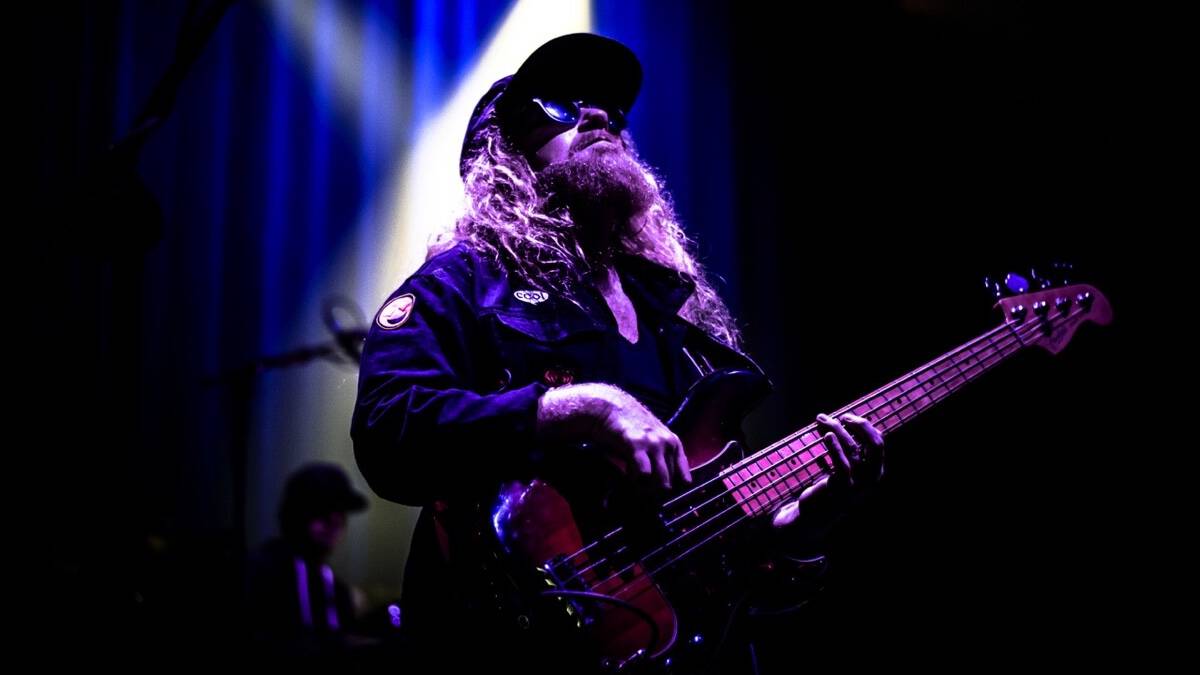
Bassist Erick “Jesus” Coomes…
It is always great to meet a super busy bassist who simply exudes a love for music and his instrument. Erick “Jesus” Coomes fits this description exactly. Hailing from Southern California, “Jesus” co-founded and plays bass for Lettuce and has found his groove playing with numerous other musicians.
Join us as we hear of his musical journey, how he gets his sound, his ongoing projects, and his plans for the future.
Photo, Bob Forte
Featured Videos
Visit Online
www.lettucefunk.com
IG @jesuscsuperstar
FB@jesuscoomes
FB @lettucefunk
Bass Videos
Working-Class Zeros: Episode #2 – Financial Elements of Working Musicians
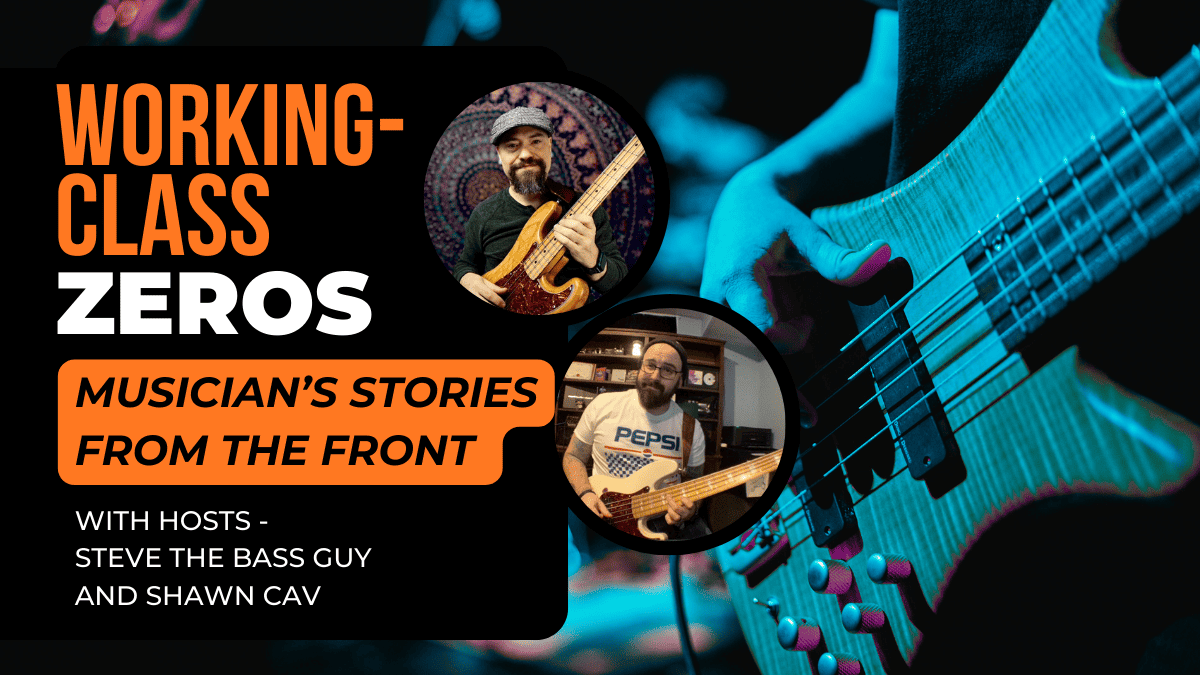
Working-Class Zeros: Episode #2 – Financial Elements of Working Musicians
“These stories from the front are with real-life, day-to-day musicians who deal with work life and gigging and how they make it work out. Each month, topics may include… the kind of gigs you get, the money, dealing with less-than-ideal rooms, as well as the gear you need to get the job done… and the list goes on from there.” – Steve the Bass Guy and Shawn Cav
Latest
This Week’s Top 10 Basses on Instagram
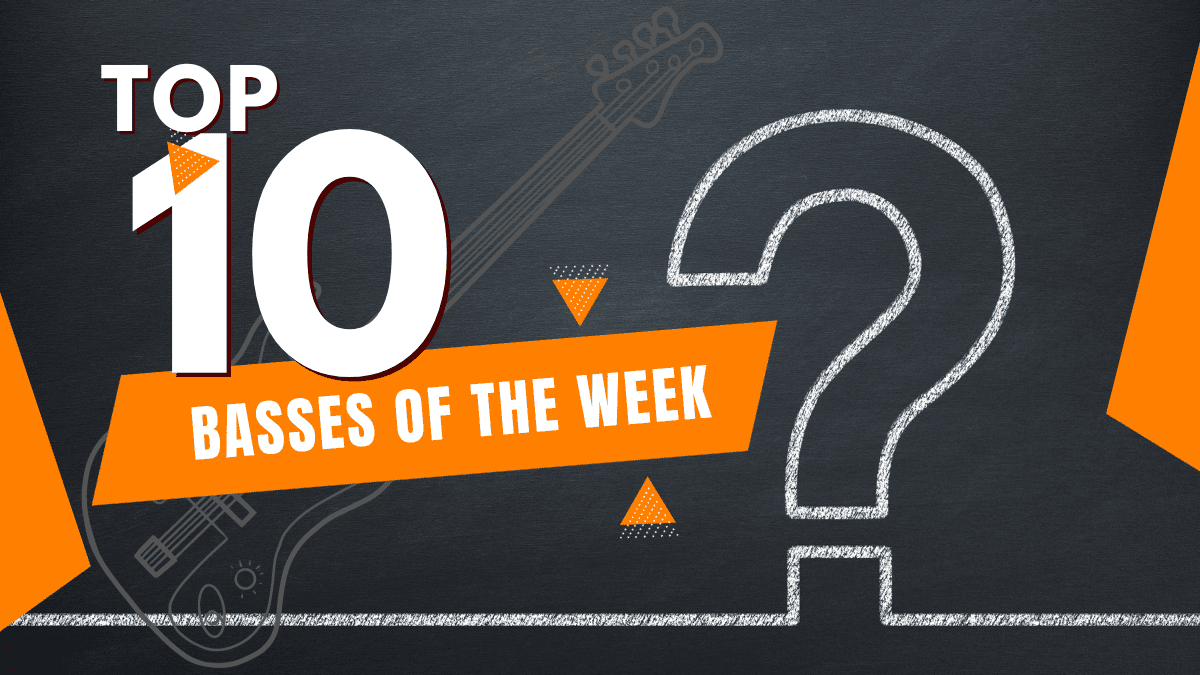
Check out our top 10 favorite basses on Instagram this week…
Click to follow Bass Musician on Instagram @bassmusicianmag
FEATURED @foderaguitars @overwaterbasses @mgbassguitars @bqwbassguitar @marleaux_bassguitars @sugi_guitars @mikelullcustomguitars @ramabass.ok @chris_seldon_guitars @gullone.bajos
Bass CDs
New Album: Jake Leckie, Planter of Seeds
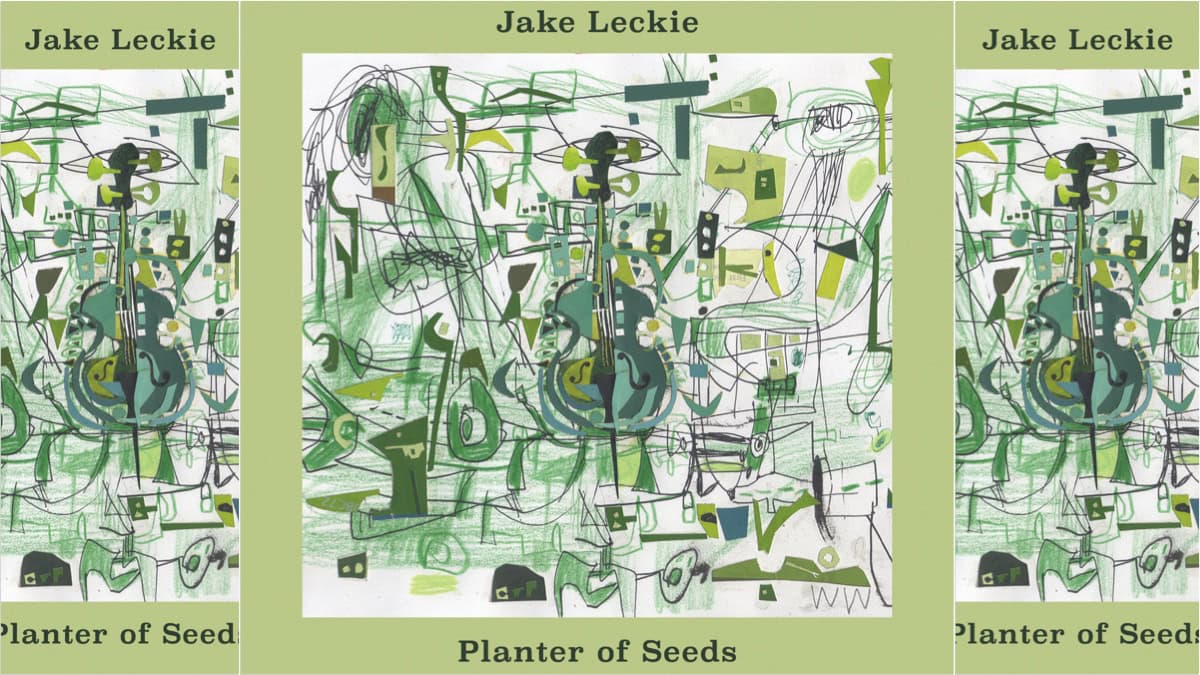
Bassist Jake Leckie and The Guide Trio Unveil New Album Planter of Seeds,
to be released on June 7, 2024
Planter of Seeds is bassist/composer Jake Leckie’s third release as a bandleader and explores what beauty can come tomorrow from the seeds we plant today.
What are we putting in the ground? What are we building? What is the village we want to bring our children up in? At the core of the ensemble is The Guide Trio, his working band with guitarist Nadav Peled and drummer Beth Goodfellow, who played on Leckie’s second album, The Guide, a rootsy funky acoustic analog folk-jazz recording released on Ropeadope records in 2022. For Planter of Seeds, the ensemble is augmented by Cathlene Pineda (piano), Randal Fisher (tenor saxophone), and Darius Christian (trombone), who infuse freedom and soul into the already tightly established ensemble.
Eight original compositions were pristinely recorded live off the floor of Studio 3 at East West Studios in Hollywood CA, and mastered by A.T. Michael MacDonald. The cover art is by internationally acclaimed visual artist Wayne White. Whereas his previous work has been compared to Charles Mingus, and Keith Jarrett’s American Quartet with Charlie Haden, Leckie’s new collection sits comfortably between the funky odd time signatures of the Dave Holland Quintet and the modern folk-jazz of the Brian Blade Fellowship Band with a respectful nod towards the late 1950s classic recordings of Ahmad Jamal and Miles Davis.
The title track, “Planter of Seeds,” is dedicated to a close family friend, who was originally from Trinidad, and whenever she visited family or friends at their homes, without anyone knowing, she would plant seeds she kept in her pocket in their gardens, so the next season beautiful flowers would pop up. It was a small altruistic anonymous act of kindness that brought just a little more beauty into the world. The rhythm is a tribute to Ahmad Jamal, who we also lost around the same time, and whose theme song Poinciana is about a tree from the Caribbean.
“Big Sur Jade” was written on a trip Leckie took with his wife to Big Sur, CA, and is a celebration of his family and community. This swinging 5/4 blues opens with an unaccompanied bass solo, and gives an opportunity for each of the musicians to share their improvisational voices. “Clear Skies” is a cathartic up-tempo release of collective creative energies in fiery improvisational freedom. “The Aquatic Uncle” features Randal Fisher’s saxophone and is named after an Italo Calvino short story which contemplates if one can embrace the new ways while being in tune with tradition. In ancient times, before a rudder, the Starboard side of the ship was where it was steered from with a steering oar. In this meditative quartet performance, the bass is like the steering oar of the ensemble: it can control the direction of the music, and when things begin to unravel or become unhinged, a simple pedal note keeps everything grounded.
The two trio tunes on the album are proof that the establishment of his consistent working band The Guide Trio has been a fruitful collaboration. “Santa Teresa”, a bouncy samba-blues in ? time, embodies the winding streets and stairways of the bohemian neighborhood in Rio de Janeiro it is named for. The swampy drum feel on “String Song” pays homage to Levon Helm of The Band, a group where you can’t always tell who wrote the song or who the bandleader is, proving that the sum is greater than the individual parts. Early jazz reflected egalitarianism in collective improvisation, and this group dynamic is an expression of that kind of inclusivity and democracy.
“The Daughters of the Moon” rounds out the album, putting book ends on the naturalist themes. This composition is named after magical surrealist Italo Calvino’s short story about consumerism, in which a mythical modern society that values only buying shiny new things throws away the moon like it is a piece of garbage and the daughters of the moon save it and resurrect it. It’s an eco-feminist take on how women are going to save the world. Pineda’s piano outro is a hauntingly beautiful lunar voyage, blinding us with love. Leckie dedicates this song to his daughter: “My hope is that my daughter becomes a daughter of the moon, helping to make the world a more beautiful and verdant place to live.”
Bass CDs
Debut Album: Nate Sabat, Bass Fiddler
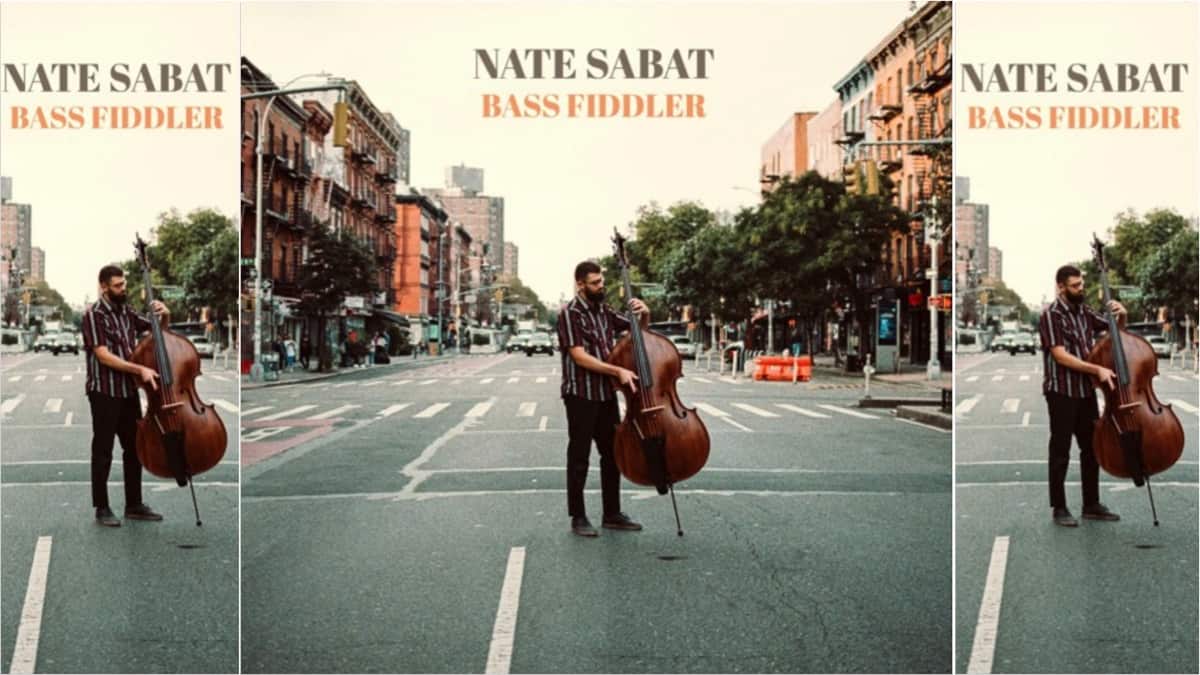
In a thrilling solo debut, bassist Nate Sabat combines instrumental virtuosity with a songwriter’s heart on Bass Fiddler…
The upright bass and the human voice. Two essential musical instruments, one with roots in 15th century Europe, the other as old as humanity itself.
On Bass Fiddler (Adhyâropa Records ÂR00057), the debut album from Brooklyn-based singer-songwriter and bass virtuoso Nate Sabat, the scope is narrowed down a bit. Drawing from the rich and thriving tradition of American folk music, Sabat delivers expertly crafted original songs and choice covers with the upright bass as his lone tool for accompaniment.
The concept was born a decade ago when Sabat began studying with the legendary old-time fiddler Bruce Molsky at Berklee College of Music. “One of Bruce’s specialties is singing and playing fiddle at the same time. The second I heard it I was hooked,” recalls Sabat. “I thought, how can I do this on the bass?” From there, he was off to the races, arranging original and traditional material with Molsky as his guide. “Fast forward to 2020, and I — like so many other musicians — was thinking of how to best spend my time. I sat down with the goal of writing some new songs and arranging some new covers, and an entire record came out.” When the time came to make the album, it was evident that Molsky would be the ideal producer. Sabat asked him if he’d be interested, and luckily he was. “What an inspiration to work with an artist like Nate,” says Molsky. “Right at the beginning, he came to this project with a strong, personal and unique vision. Plus he had the guts to try for a complete and compelling cycle of music with nothing but a bass and a voice. You’ll hear right away that it’s engaging, sometimes serious, sometimes fun, and beautifully thought out from top to bottom.”
While this record is, at its core, a folk music album, Sabat uses the term broadly. Some tracks lean more rock (‘In the Shade’), some more pop (‘White Marble’, ‘Rabid Thoughts’), some more jazz (‘Fade Away’), but the setting ties them all together. “There’s something inherently folksy about a musician singing songs with their instrument, no matter the influences behind the compositions themselves,” Sabat notes. To be sure, there are plenty of folk songs (‘Louise’ ‘Sometimes’, ‘Eli’) and fiddling (‘Year of the Ox’) to be had here — the folk music fan won’t go hungry. There’s a healthy dose of bluegrass too (‘Orphan Annie’, ‘Lonesome Night’), clean and simple, the way Mr. Bill Monroe intended.
All in all, this album shines a light on an instrument that often goes overlooked in the folk music world, enveloping the listener in its myriad sounds, textures, and colors. “There’s nothing I love more than playing the upright bass,” exclaims Sabat. “My hope is that listeners take the time to sit with this album front to back — I want them to take in the full scope of the work. I have a feeling they’ll hear something they haven’t heard before.”
Available online at natesabat.bandcamp.com/album/walking-away




















